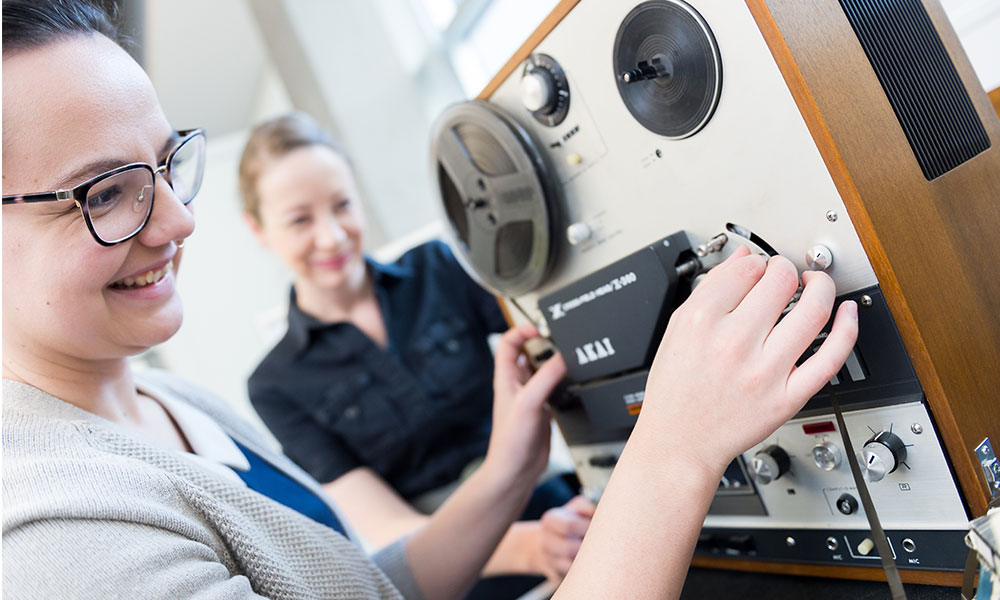
In one corner of the room, a student slips a piece of audio tape onto a reel-to-reel tape recorder, preparing to listen to the sound of a poet’s voice from 1960s Vancouver. In another corner students translate and digitize General e Grand Estoria, the most expansive 13th-century book written in Spanish, while another student works on an augmented reality animation project that retells stories featured in South Asian scroll paintings.
These projects are three of the many taking place at UBCO’s AMP Lab, which investigates the relationship between non-digital media—like books, paintings, photographs and analog tape—to digital media such as software, websites and social media. The lab explores questions about what scholars and the general public know about digitized cultural history.
“There’s value in using a humanistic lens on technology. It’s not the invasion of scientific approaches to the humanities, but rather a re-evaluation of humanities’ ways of doing things,
Dr. Emily Murphy, Assistant Professor in UBCO’s Faculty of Creative and Critical Studies and Assistant Director of the AMP Lab
Digital humanities work involves researching, teaching and learning about the humanities in a digital context—whether that’s building and using software, websites and datasets to display information, or digitizing, preserving and using other technology-focused methods like augmented and virtual reality. This relatively new field of study—with its origins in the mid-20th century—is helping scholars develop fresh knowledge about the past and present it in dynamic new ways.
According to Dr. Emily Murphy, Assistant Professor in UBCO’s Faculty of Creative and Critical Studies and Assistant Director of the AMP Lab, when materials are digitized they are easier to access and the life span of materials increases.
“Cultural history only continues to exist if we re-engage with it and recirculate it. Digitization can help to do this: it translates cultural knowledge from one media form to another and gives us new ways to access and circulate it. It can also increase scholarly and public interest in the original, non-digital object.”
Please visit the UBC Okanagan News website to read the full story.
Through dialogue and knowledge exchange, we are working to align UBC’s efforts more closely with priority issues in British Columbia and beyond (Strategy 16: Public Relevance)